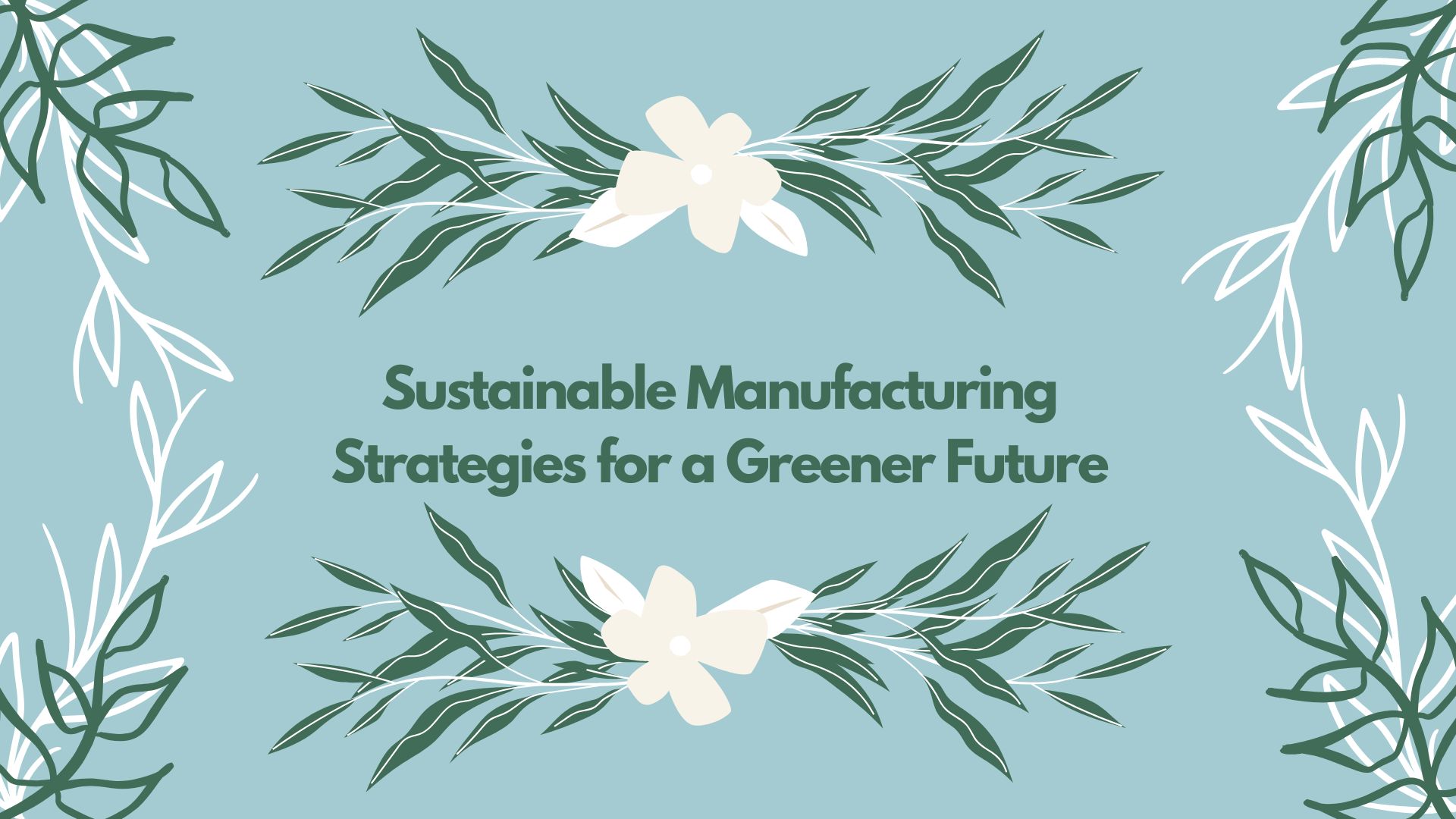Introduction
Sustainability has become a crucial focus in the manufacturing industry, driven by environmental concerns and increasing regulatory pressures. This blog explores the strategies and practices that manufacturers can adopt to reduce their environmental impact and promote sustainable operations.
Understanding Sustainable Manufacturing
Sustainable manufacturing involves producing goods in ways that minimize negative environmental impacts, conserve energy and natural resources, and are safe for employees, communities, and consumers. It encompasses a wide range of practices aimed at achieving economic, social, and environmental sustainability.
Key Strategies for Sustainable Manufacturing
- Energy Efficiency: Implementing energy-efficient technologies and practices to reduce energy consumption and greenhouse gas emissions.
- Waste Reduction: Minimizing waste through lean manufacturing principles, recycling, and reusing materials.
- Eco-friendly Materials: Using sustainable materials and reducing reliance on non-renewable resources.
- Green Supply Chain: Collaborating with suppliers to ensure sustainable practices throughout the supply chain.
- Water Conservation: Implementing water-saving technologies and practices to reduce water usage and pollution.
Benefits of Sustainable Manufacturing
- Cost Savings: Reducing energy and material costs through efficient practices and waste reduction.
- Regulatory Compliance: Meeting environmental regulations and avoiding penalties associated with non-compliance.
- Enhanced Reputation: Building a positive brand image by demonstrating commitment to sustainability.
- Innovation and Growth: Driving innovation through the development of sustainable products and processes.
- Employee Engagement: Fostering a culture of sustainability can boost employee morale and engagement.
Implementing Sustainable Manufacturing
- Conduct a Sustainability Audit: Assess your current operations to identify areas for improvement.
- Set Sustainability Goals: Define clear and measurable sustainability objectives aligned with your business strategy.
- Invest in Technology: Adopt advanced technologies that support sustainable practices, such as energy-efficient machinery and renewable energy sources.
- Engage Stakeholders: Collaborate with employees, suppliers, and customers to promote sustainable practices.
- Monitor and Report: Regularly track your progress and report on sustainability initiatives to ensure transparency and accountability.
Case Study: Sustainability Initiatives at [Company Name]
[Company Name], a global leader in consumer electronics, has implemented several sustainability initiatives with notable results:
- 40% Reduction in Energy Consumption: Energy-efficient technologies and renewable energy sources significantly lowered energy usage.
- 30% Waste Reduction: Lean manufacturing and recycling programs reduced waste and improved resource efficiency.
- Improved Brand Reputation: Commitment to sustainability enhanced the company’s reputation and customer loyalty.
Conclusion
Sustainable manufacturing is essential for the future of the industry, offering numerous benefits for businesses, society, and the environment. By adopting sustainable practices, manufacturers can reduce their environmental footprint, comply with regulations, and achieve long-term success. Embracing sustainability is not just a trend but a vital strategy for building a greener and more prosperous future.









